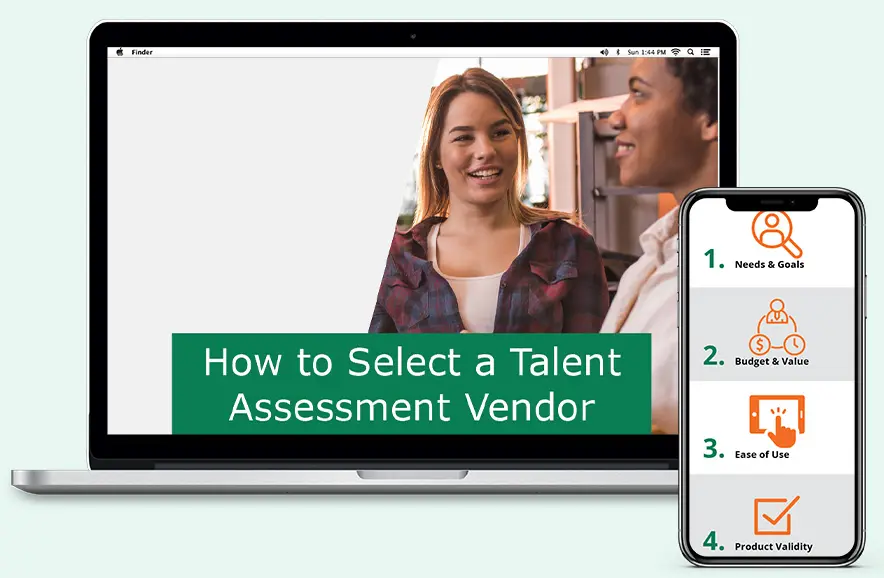According to Forbes, the U.S. Department of Labor puts the cost of a bad hire at 30% of the annual salary for that position. And McKinsey & Co. states that hiring a ‘top performer’ over an ‘average performer’ yields up to 67% more productivity and profit. Obviously there is a lot at stake every time you fill a position at your company. Here are nine other benefits you will enjoy if you hire the right candidate the first time around.
-
- You will slash the costs of the hiring process:
It’s no secret that the hiring process is expensive. Not only do your hiring managers have to take time out of their busy schedules, but you also have to spend money on criminal background checks, skills tests, job board postings, and more. When you hire the wrong person, you have to conduct the same hiring process more than once, essentially doubling the cost. A good hire avoids both the second hiring process and the added cost.
- You will slash the costs of the hiring process:
-
- You will maximize productivity:
Your time is valuable, and your managers’ time is valuable. Running a hiring process means pulling high-level members of your team out of their day-to-day routines and having them review applications and conduct interviews. When you have four or five interviews every day for a few weeks, it’s tough to get much of your other work done. A quick and thorough hiring process allows you to get back to work sooner and with greater efficiency.
- You will maximize productivity:
-
- You’ll save time you would have spent reviewing applications or sitting in interviews:
Productivity loss isn’t the only problem with stranding yourself or your business leaders in interview rooms. The other issue is even simpler: boredom. After a while, every resume can start looking the same, and interviews feel interchangeable. When you spend too much time conducting a hiring process, your own boredom might leave you poorly equipped to recognize top candidates. The fewer and further-between your hiring processes are, the easier it will be to get down to business with a clear head and find the diamond in the rough.
- You’ll save time you would have spent reviewing applications or sitting in interviews:
-
- You won’t have to deal with the damage that a bad hire can do to your company:
Bad hires can have a negative impact for a lot of different reasons. Some of them can pose a safety risk to customers or colleagues (hence the need to run criminal background checks). Others might steal from your company, hurt your client relations through incompetence, or create a negative atmosphere in the workplace. Bad hires will almost always damage your business in one way or another. Avoiding bad hires will keep your enterprise untarnished.
- You won’t have to deal with the damage that a bad hire can do to your company:
-
- You will preserve the morale of your internal teams:
No employee exists in a vacuum. Every person you hire fits into your organization like a puzzle piece in a much larger canvas. A good hire can not only add vital new skills and experience to your team, but can also bring warmth, inspiration, and camaraderie to your company culture. At the other end of the spectrum, a bad hire can hurt the morale of your entire staff, whether by spoiling the work culture with a bad attitude or by forcing other team members to pick up the slack behind his or her lackluster work.
- You will preserve the morale of your internal teams:
-
- You will protect your image as an employer
When your company culture goes downhill, word will always get out. If your employees aren’t saying good things about your business (or if they are leaving because they are no longer happy with their jobs), those things reflect poorly on you as an employer. If you post the same job twice in a six-month period, that also reflects poorly on you as an employer. Hiring the right people will protect your reputation on both fronts.
- You will protect your image as an employer
-
- You won’t let good candidates go out the door:
Every time you hire someone, you have to turn down dozens of other applicants—a fair number of whom are probably qualified for the position. If you find the right person, this tradeoff doesn’t sting so badly. When you make a bad hire, it can be frustrating to know that you let better candidates slip through your fingers. Sure, you might still have contact information for some of the people who were in your applicant pool the first time, but the most qualified people have probably already found other jobs and won’t be too eager to come running back to a company that already rejected them.
- You won’t let good candidates go out the door:
-
- You don’t have to train an employee who won’t stick around:
Interviewing people and reviewing resumes is a hassle, but often, the single biggest irritation of the hiring process is employee onboarding. Training employees, acquainting them with your company processes and policies, and helping them integrate into your team takes a lot of time. Even with very talented and adaptable people, the onboarding process will never happen overnight. Depending on the complexity of the position at hand, it can take your new hire months—if not a solid year—to reach full productivity. Putting all that time and effort into training someone who isn’t going to be a part of your organization is one of the most crushing blows when you’ve made a bad hire. To make matters worse, when you do eventually hire someone else, you have to start the onboarding process—and the ramp up to full productivity—over again.
- You don’t have to train an employee who won’t stick around:
-
- You avoid giving passwords and confidential company information to people you can’t trust:
These days, every employee needs access to company websites, accounts, software, and confidential information. Usually, giving out this info is no big deal, because you are giving it to people who are going to be a part of your team for years to come. When you bring a person into your organization, give them the keys to the kingdom, and then terminate their employment a few months later, you create a major cyber-security headache. Sure, your IT team can just shut down the user’s accounts, logins, or software licenses. What you can’t do is take back any confidential information that the person gleaned while working for your company. Hiring the right person the first time helps make sure that as few people as possible ever get access to your systems or data.
- You avoid giving passwords and confidential company information to people you can’t trust:
Conclusion
The hiring process is difficult—made tougher by the fact that some job searchers are willing to lie to enhance their employment chances. Employers can fight bad hires by implementing detailed employee screening processes, including criminal background checks, reference checks, verification checks (for employment, education, and professional certification), skills tests, personality assessments, and targeted interview questions. These methods, combined with a clear picture of what the job at hand entails and what the company culture should be, will help you find the right hire the first time around.
After hiring the best candidate, you may find that they are unintentionally breaking rules or company policies. Learn more about how pre-employment testing can bring these traits to light early on and 3 common reasons why we break rules.
AUTHOR: Michael Klazema has been developing products for pre-employment screening and improving online customer experiences in the background screening industry since 2009. He is the lead author and editor for Backgroundchecks.com. He lives in Dallas, TX with his family and enjoys the rich culinary histories of various old and new world countries.










